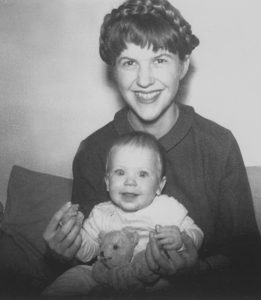Joanna Biggs at the LRB:
 Plath grows up in Cold War America, deceived by a God who let her father die, wanting more than anything to be a writer and to marry a man who would make her feel like she had a vodka sword in her stomach, always. And she gets it when she arrives in Cambridge in 1956, meets her black marauder and marries him ‘in mother’s gift of a pink knit dress’ three and a half months later. (When I got married at 28 to the man I met at Oxford at 19, I married in pink partly under the influence of Ted and Sylvia, partly because my mother had also married, though not knowing or caring about Plath, in a pink knitted dress in 1977. I liked the resonances, then.) But the world, even when it gives her what she wants, also doesn’t. Literary success is baseless, fleeting; the marriage dissolves in betrayal, arguments, abandonment. The hard work has come to ash. Awake at 4 a.m. when the sleeping pills wear off, she finds a voice and writes the poems of her life, ones that will make her a myth like Lazarus, like Lorelei. But now she knows that her conception of her life, psychological and otherwise, is no longer tenable, and never was. Now what? ‘I love you for listening,’ Plath, abandoned and alone, tells her analyst Ruth Beuscher in a letter late in 1962. The rest of us are listening at last.
Plath grows up in Cold War America, deceived by a God who let her father die, wanting more than anything to be a writer and to marry a man who would make her feel like she had a vodka sword in her stomach, always. And she gets it when she arrives in Cambridge in 1956, meets her black marauder and marries him ‘in mother’s gift of a pink knit dress’ three and a half months later. (When I got married at 28 to the man I met at Oxford at 19, I married in pink partly under the influence of Ted and Sylvia, partly because my mother had also married, though not knowing or caring about Plath, in a pink knitted dress in 1977. I liked the resonances, then.) But the world, even when it gives her what she wants, also doesn’t. Literary success is baseless, fleeting; the marriage dissolves in betrayal, arguments, abandonment. The hard work has come to ash. Awake at 4 a.m. when the sleeping pills wear off, she finds a voice and writes the poems of her life, ones that will make her a myth like Lazarus, like Lorelei. But now she knows that her conception of her life, psychological and otherwise, is no longer tenable, and never was. Now what? ‘I love you for listening,’ Plath, abandoned and alone, tells her analyst Ruth Beuscher in a letter late in 1962. The rest of us are listening at last.
more here.
